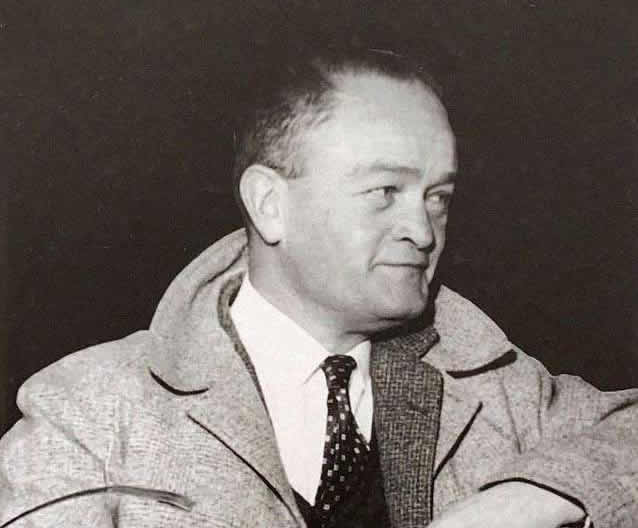Translated to English by Richard Gabela on April 14, 2024, from the original work “La voz del río” by Wenceslao Pareja (1880-1947) of Guayaquil, Ecuador. I have translated the title of the poem as “The River’s Voice.”
Continue reading “The River’s Voice by Wenceslao Pareja”Posts
The Soul of the Mountains by Miguel E. Neira
Translated to English by Richard Gabela on April 14, 2024, from the original work “El Alma de las Montañas” (1907) by Miguel E. Neira of Guayaquil, Ecuador. I have translated the title of the poem as “The Soul of the Mountains.”
Continue reading “The Soul of the Mountains by Miguel E. Neira”Chant of Peace by Gastón Hidalgo Ortega
Translated to English by Richard Gabela on April 10, 2024, from the original work “Cantoral de Paz” by Gastón Hidalgo Ortega (1929-1973) of Guayaquil, Ecuador. I have translated the title of the poem as “Chant of Peace.”
Continue reading “Chant of Peace by Gastón Hidalgo Ortega”Testimonies by Eugenio Moreno Heredia
Translated to English by Richard Gabela on April 10, 2024, from the original work “Testimonios” by Eugenio Moreno Heredia (1926—1997) of Cuenca, Ecuador. I have translated the title of the poem as “Testimonies.”
Continue reading “Testimonies by Eugenio Moreno Heredia”Sick Motherland by Fanny Caicedo
Translated to English by Richard Gabela on April 10, 2024, from the original work “Patria Enferma” by Fanny Caicedo (1932–2001) of Yaguachi, Ecuador. I have translated the title of the poem as “Sick Motherland.”
Continue reading “Sick Motherland by Fanny Caicedo”The Moon and the Boy by Diógenes Cuero Caicedo
Translated to English by Richard Gabela on April 10, 2024, from the original work “La Luna y el Niño” by Diógenes Cuero Caicedo (1948–2019) of Esmeraldas, Ecuador. I have translated the title of the poem as “The Moon and the Boy.”
Continue reading “The Moon and the Boy by Diógenes Cuero Caicedo”Kiss Me by Mary Corylé
Translated to English by Richard Gabela on April 9, 2024, from the original work “Bésame” (1925) by Mary Corylé (1894-1976) of Cuenca, Ecuador. I have translated the title of the poem as “Kiss Me.”
Continue reading “Kiss Me by Mary Corylé”Dead Minute by Gerardo Chiriboga
Translated to English by Richard Gabela on April 5, 2024, from the original work “Minuto muerto” by Gerardo Chiriboga (1895-1966) of Riobamba, Ecuador. I have translated the title of the poem as “Dead Minute.”
Continue reading “Dead Minute by Gerardo Chiriboga”Spiritual Colloquy by Jorge Ismael Gandú
Translated to English by Richard Gabela on April 5, 2024, from the original work “Coloquio Espiritual” by Jorge Ismael Gandú (1904-Unknown) of Guayaquil, Ecuador. I have translated the title of the poem as “Spiritual Colloquy.”
Continue reading “Spiritual Colloquy by Jorge Ismael Gandú”Jorge Ismael Gandú
Jorge Ismael Gandú, pseudonym of José Miguel Granda Granda (Celica, Loja Province of Ecuador, 1904 – Medellin, Colombia, Unknown) was an Ecuadorian poet and songwriter, renowned primarily for his significant contributions to the pasillo genre, a type of Latin American music. While his literary endeavors culminated in the publication of the poetry collection “Hontanar” in 1937, a work dedicated to his mother, wife, and homeland, it was his role as a lyricist for numerous pasillo songs that truly cemented his fame. Gandú’s ability to weave emotional depth into his lyrics resonated with composers and audiences alike, leading to collaborations with notable musicians such as Nicasio Safadi, who set Gandú’s poem “De corazón a corazón” to music.
Continue reading “Jorge Ismael Gandú”Gerardo Chiriboga
Gerardo Chiriboga (Riobamba, 1895 – Quito, 1966) was an Ecuadorian genealogist, journalist, and poet, known for his diverse contributions to the literary and historical fields. Among his literary works, “Minuto muerto, poemas” (1934) stands out as a compelling collection of poems. Additionally, he authored “Galápagos: El hombre, la tierra y el paisaje” (1948), a comprehensive exploration of the Galápagos Islands. This work is part of a significant body of literature that emerged post-World War II about the archipelago, following the departure of the American base. His literary efforts, including his recognized contributions to poetry in the anthology “Antología de poetas Riobambeños” (Anthology of Poets from Riobamba) (1963), further cement his place in Ecuador’s literary history.
Continue reading “Gerardo Chiriboga”Dance of the Leaves by Gerardo Chiriboga
Translated into English by Richard Gabela on April 5, 2024, from the original work “Danza de las Hojas” by Gerardo Chiriboga (1895-1966) of Riobamba, Ecuador. I have translated the title of the poem as “Dance of the Leaves.”
Continue reading “Dance of the Leaves by Gerardo Chiriboga”Little Girl from My Neighborhood by Inés Márquez Moreno
Translated to English by Richard Gabela on April 9, 2024, from the original work “Muchachita de mi Barrio” by Inés Márquez Moreno (1914–2017) of Cuenca, Ecuador. I have translated the title of the poem as “Little Girl from My Neighborhood.”
Continue reading “Little Girl from My Neighborhood by Inés Márquez Moreno”Cristóbal Cevallos Larrea
Cristóbal Cevallos Larrea (1902-1978), holding a Doctorate in Law, was a multifaceted Ecuadorian intellectual, poet, writer, journalist, teacher, and jurist who had a significant influence on Ecuador’s cultural landscape. Cristóbal Cevallos Larrea demonstrated his dedication to cultural enrichment by leading the Chimborazo branch of the Casa de la Cultura in Riobamba, serving as a founding member in 1953 and later as its president in 1964, as well as heading the Ateneo del Chimborazo. In legal and educational spheres, Larrea held the positions of Minister and President of the National Court of Justice and taught Constitutional and Political Law and Civic Studies at the Colegio Nacional Maldonado in Riobamba for many years. Among his literary works, “La Gesta Amazónica” is renowned as an epic poem dedicated to the Amazon.
Continue reading “Cristóbal Cevallos Larrea”Gustavo Vallejo Larrea
Gustavo Vallejo Larrea (Riobamba, 1905 – Quito, 1961), a journalist, poet, legislator, and advocate for education, founded the “Campaña Nacional de Alfabetización” (National Literacy Campaign) in 1948. As president of the National Union of Journalists (UNP), he led this movement, significantly reducing illiteracy rates across Ecuador for 17 years. His dedication, fueled by the belief in education’s pivotal role in national development, propelled the campaign to isolated areas, urban suburbs, and even prisons. Additionally, Vallejo played a significant role in shaping the 1945 Ecuadorian Constitution, contributing to its clarity and the articulation of progressive principles. Vallejo’s legacy continues, with a school in Quito named in his honor and a bust in Riobamba.
Continue reading “Gustavo Vallejo Larrea”

